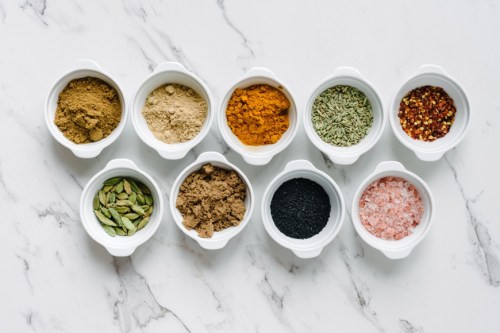The gross reason you should freeze your spices before storing them in your pantry
Freeze your spices before storing them in your pantry to prevent bugs from infiltrating your spices—they are especially prevalent in pepper-like spices.

There are many benefits to cooking a healthy meal for yourself: It saves you money, makes it easier for you to adhere to clean-eating goals, and opens you up to a world of food-related content on Netflix. After a long day at work, you can unwind by chopping your favorite veggies, sprinkling on some spices, and sitting down to devour a dish jam-packed with flavor…and a splash of insect protein. Wait…what?
Sorry to completely gross you out, but knowledge is power: Your spices could be playing host to a variety of pantry pests. According to Huffington Post, it’s not uncommon to find a colony of bugs in any pepper-like spice such as paprika, cayenne pepper, and chili powder. The crawlers also share your love of turmeric, coriander, cumin, fennel, and dry ginger. Gag.
Some of these bugs are the size of sesame seeds (the most common are cigarette beetles and drugstore beetles, which can fly, FYI), but you also might see teeny-tiny worms (AKA larvae, the bugs in baby form), according to Huffington Post.
“The pepper family appears to contain the nutritional requirements necessary for multiple generations of stored product beetles to successfully sustain life.” —Dr. Jody M. Green, entomologist
And there’s a simple explanation for why these unwelcome guests make your go-to spices their homes. “Spices are rich in minerals and vitamins, and paprika and cayenne have high prevalence of insect filth compared to other imported spices,” entomologist (AKA insect expert) Jody M. Green, PhD, told Huffington Post. “They’re particularly fond of products derived from dried sweet peppers/chilies/red pepper products like red pepper flakes, paprika, chili powder, and cayenne. The pepper family appears to contain the nutritional requirements necessary for multiple generations of stored product beetles to successfully sustain life,” she said.
So, what can you do about these bug infestations? Well, first inspect your item at the store to look for damaged packaging, Dr. Green said. Most spices are imported to the United States, and the bugs might have gotten in during that time. Once you get home, put your new spices in the freezer for four days at 0 degrees Fahrenheit (the standard freezer temp, according to University of Nebraska-Lincoln’s Institute of Agriculture and Natural Resources) before you store them in your pantry.
Sorry, creepy crawlers, but you’re going to have to get your hygge on elsewhere.
Here are four healthy staples Alison Wu believes every pantry starter kit needs. Or, update your breakfast scramble with this sweet potato and avocado recipe.
Sign Up for Our Daily Newsletter
Get all the latest in wellness, trends, food, fitness, beauty, and more delivered right to your inbox.
Got it, you've been added to our email list.










